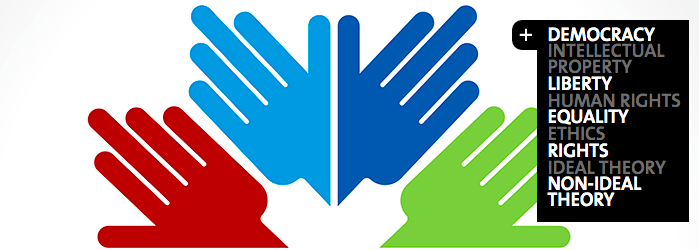Projet de recherche : A Democratic Conception of Ethics - Annabelle Lever

A Democratic Conception of Ethics
A project funded by SNF (159549) led by Professor Annabelle Lever
With: Melis Akdag
From August 2015 to July 2018
Summary
This project develops the building blocks of what I call ‘A Democratic Conception of Ethics’, or ‘democratic ethics’ for short. It shows (1) that we can use the forms of freedom, equality, rights and duties which are uncontroversially necessary to democratic government as a starting point for ethical reflection. In this way, a democratic ethics brings clarity to philosophical debates about equality, and the meaning of liberty, by showing which ones are necessary, and which irrelevant to people who assume that democracy is a legitimate form of government. This part of the project builds upon my published research on privacy, on sexual and racial equality and on democracy, and reflects my experience as an ethics advisor to the European Union’s Directorate General for Research. The project also shows (2) how we can use democratic institutions and practices as models of what it is to treat people equally, and what types of institutions and practices foster, rather than impede, democratic freedoms. This part of the project builds on my most recent research in the philosophy of intellectual property and, in particular, on a paper called ‘Democracy, Public Goods and Intellectual Property’, under review at the Critical Review of Social and Political Philosophy. It shows that the differences between Majoritarian and Proportional systems of democratic representation illuminate the justification for intellectual property (IP), highlight the deficiencies of existing ways of regulating IP, and suggest practical remedies for those deficiencies. To be clear: the aim of this project is not to replace existing forms of moral and political philosophy, whose merits are considerable, but to offer an alternative whose methodological and substantive insights can be adapted as needed by philosophers working in different traditions. However, the appeal of a democratic ethics lies mainly in the theoretical clarity and practical guidance that it can offer in its own right. My aim therefore, is to create the building blocks for an approach to ethics that is eminently practical: that will improve teaching and research in practical ethics, and that will help citizens and policymakers to think clearly and creatively about the ethical problems they face. The project proceeds in two parts, which will be conducted more or less simultaneously. The first seeks to demonstrate why an explicitly political, and democratic, approach to ethics is desirable, and how it is possible. The second part seeks to show what a democratic approach to ethics means by working out its implications for the analysis of human rights and for the justification of intellectual property. The former concerns moral rights that we are all entitled to exercise no matter the government under which we live; the latter concerns legal rights whose justification is mainly consequentialist and whose consequences for individuals and societies have made them the object of political controversy across the globe. By showing that a democratic approach to ethics can improve our understanding of both, this project seeks to show that a democratic ethics is possible and desirable. By showing how it improves upon existing philosophical approaches to moral and political controversy, it aims to show how other forms of ethical reflection can benefit from a more explicitly political perspective on morality.
2 novembre 2015
Actualités
